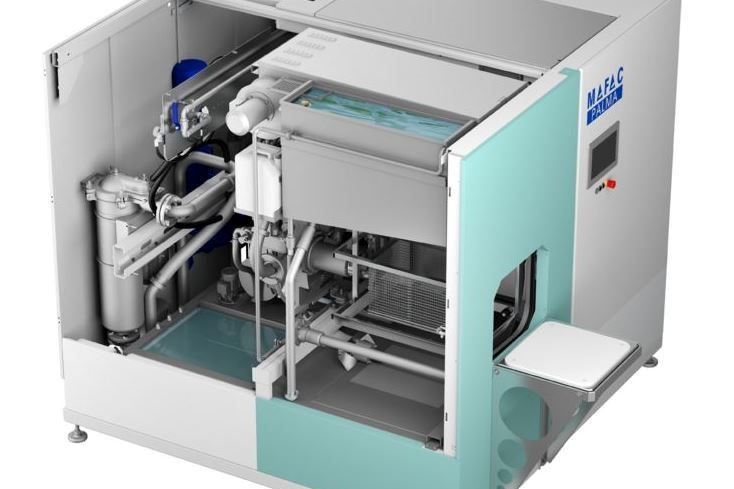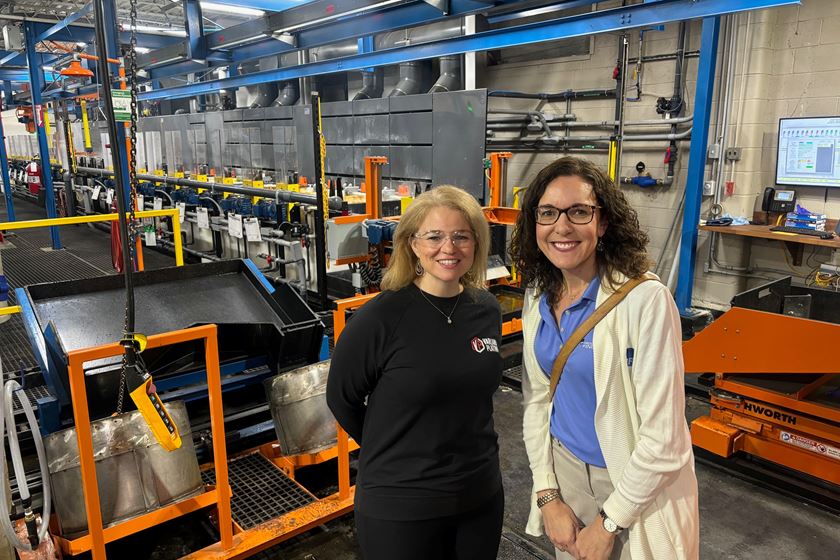As NASF members get ready to travel to the Capital to attend the Washington Forum conference in April, one person they may keep an eye out for is U.S. Sen. Sherrod Brown (D-OH), who knows about the damage that offshoring can cause. According to the Bureau of Labor Statistics, nearly 400,000 manufacturing jobs have been lost in Ohio over the last decade, which is why he recently signed on to legislation to support the manufacturing sector with the Offshoring Prevention Act of 2011. We recently spoke with Sen. Brown to get his take on manufacturing in America, and what NASF members should do when they meet their congressional delegation.
You’ve been working with President Obama, Vice President Biden, and members of the administration to establish a national manufacturing policy that invests in America’s workers. Where do we stand on this initiative, and what is holding it up?
SB: President Obama has taken major steps to promote American manufacturing. I urged him to appoint a national manufacturing point person and Ron Bloom, as President Obama’s Senior Counselor for Manufacturing Policy has made great strides. I have also pressed the Obama Administration and the International Trade Commission to enforce trade laws that have meant jobs retained or created in Ohio’s paper, steel, and tire industries. But there is much more we must do. Any national manufacturing strategy must promote:
- Innovation: Our tax and trade policies can create a favorable business climate that creates jobs and promotes the manufacturing innovation needed to strengthen our economic competitiveness. I’ve long supported business incubators, and R&D tax credits and extension of clean energy tax credits that have already helped Ohio businesses expand operations and to keep and create jobs.
- Supply Chains: The small and medium-sized manufacturers that make up our storied supply chain must have the tools to transition to growing industries, like clean energy. I’m working on legislation that would establish a revolving loan fund to help manufacturers retool factories with new technologies- so manufacturers who build gears for trucks can develop gear boxes for wind turbines
- Workforce Training: Just as we create tax incentives for economic development, federal policies can also incentivize workforce training to help match workers with industry needs. I plan to strengthen the upcoming Workforce Investment Reauthorization by introducing bipartisan legislation that helps communities develop specialized, sector-based workforce training programs to connect workers with the needs of regional, emerging industries.
- Fair Trade: We must encourage companies to do more business in America – and to keep more jobs in America. That’s why I have worked on trade legislation – from fixing existing agreements, to requiring trade negotiators to open new markets, to equipping the Commerce department with tools to stand up to Chinese currency manipulation and subsidization of industries.
You wrote a book in 2004 called “Myths of Free Trade: Why American Trade Policy Has Failed.” Has anything changed from your perspective since your book came out?
SB: We’ve lost more jobs since I wrote my book and trade policy has not changed nearly enough to ensure globalization’s benefits are shared more broadly. But I’ve seen more examples about how trade enforcement means jobs in Ohio – Obama has enforced trade law more than his past two predecessors. We’ve also seen the private sector respond more to the elimination of manufacturing jobs and capacity. Since June 2010, I have been working with the United Steelworkers (USW) and the American Wind Energy Association (AWEA) to accelerate the development and deployment of wind energy manufacturing in the U.S. Following a report was released revealing that a clean-energy grant program in the Recovery Act paid out more than $1 billion to foreign manufacturers. I worked to bring these two groups together to make the U.S. a leader in wind energy.
As a member of the Senate Banking Subcommittee on Economic Policy, you say you will continue to advocate on behalf of small businesses to create jobs. What can be done to immediately help these businesses hire more people and grow their business?
SB: Nearly two-thirds of new jobs originate in small businesses, making small business lending critical to our economic recovery. Passing the Small Business Jobs Act was a top priority of mine and that of the president. Endorsed by the Chamber of Commerce and National Federal of Independent Businesses (NFIB), the new law will eliminate fees and caps on popular Small Business Administration-backed loans that help business make capital improvements and hire workers. For the past two years, my office has also held a series of small business workshops throughout the state aimed at helping small business understand critical new resources available to them: from the American Recovery and Reinvestment (ARRA) Act loan programs; to the Hiring Incentives to Restore Employment (HIRE) Act that provides tax incentives to employers who hire dislocated workers; and resources for doing business with the federal government.
As one of three Democratic Senators on the President's Export Council working to advance the National Export Initiative, you spoke recently about how increased exports are critical to the U.S. economic recovery and to our nation's long-term economic growth. How do you plan to help manufacturers in this regard?
SB: Our economic recovery hinges on our ability to rebuild Ohio’s manufacturing base and to help small business in Ohio find new markets for their products. I’m working to advance National Export Initiative (NEI) and President Obama’s goal to double exports over the next five years. To complement work of the President’s Export Council (PEC), I recently organized the Ohio Export Advisory Group to help advance Ohio’s export opportunities abroad. Among other strategies, we can boost American exports by helping small and medium-sized businesses connect to export opportunities, modernizing the U.S. Commercial Service, which is part of the U.S. Commerce Department and facilitates trade relationships for U.S. companies, and negotiating fair access policies to new markets for American producers.
At the same time, we need to ensure that American companies have a fair shake when selling their goods to other countries. In too many cases, trade is not often truly “free” with our trading partners. American exporters, workers, and manufacturers can compete with any in the world, but when countries like China manipulate currency, give illegal subsidies to domestic industries, or restrict access to their markets, that’s not competing; it’s cheating. To address this, I’m working on legislation which would require the United States Trade Representative to eliminate unfair or discriminatory barriers to American exports. We cannot double exports and create jobs unless we address predatory trade practices. Just like the small business workshops, my office has also hosted a series of export seminars for Ohio companies seeking to grow their businesses through global market development.
You’ve requested that the Government Accountability Office evaluate U.S. Commercial Service programs that are designed to help small businesses become more global. How do you think those programs have performed?
SB: We will get a more complete picture when the GAO sends me its report, but I understand there are several ways we can improve coordination among export agencies and do a better job targeting emerging markets.
A group from the National Association of Surface Finishers will be coming to Washington DC in April to lobby their elected officials on ways to help the manufacturing sector. What advice do you give them when they sit down with their congressional leadership in advancing the cause of manufacturers?
SB: If we want to stay competitive with other nations and lead the world again in responding to the challenges of this century, we need a strong national manufacturing policy. I encourage your members to remind elected officials that Americans have always known how to build things. We’re one of the only industrialized nations without a national manufacturing strategy; now, we’re paying the price. Acting now means that we won’t have to look back in 20 years and ask ourselves why we gave up our industrial base. Acting now means that American workers will manufacture American products that will strengthen America’s global competitiveness. Your members should remind those elected officials that the stakes are too high for us to ignore the importance of American manufacturing.
RELATED CONTENT
-
While the red color may not be desirable, anodizing expert Drew Nosti says it poses no particular problem to a successful anodizing process.
-
Our expert, Art Kushner, says yes, you can color stainless steel, but it is not a process that is typically performed in a plating shop. Read more about his answer.
-
Anodizing for pre-prep bonding bridges the gap between metallic and composite worlds, as it provides a superior surface in many applications on aluminum components for bonding to these composites.















